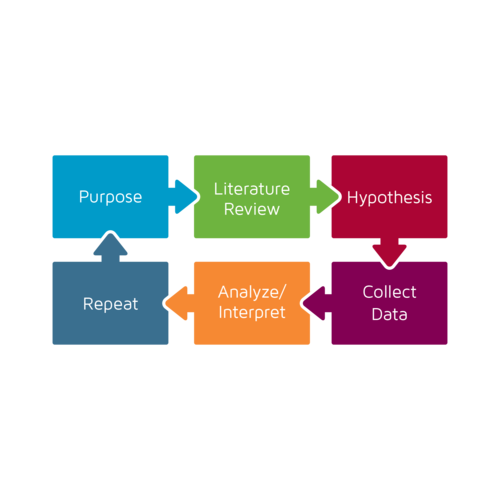Survey research is a part of the scientific process – and even a science on its own. So why do researchers abandon the science when they implement their studies? An astronomer would not go to the hobby store to buy a telescope to study the galaxy. A geneticist would never purchase non-sterile test tubes from an unknown source to capture saliva samples from research subjects. So why do social scientists routinely treat their own data collection tools this way?

The traditional scientific method as it is applied to the social sciences.
Your social science research must embrace the scientific method throughout. Look at what you do and ask yourself – is it science-based or are you satisficing in the implementation of your survey research?
By employing the scientific method, you can easily correct the following six mistakes that are routinely made during the implementation of social science research:
- Results cannot be used because the purpose of the current study was lost.
- Inconsistencies in study replication leave comparisons with previous literature and research lacking.
- The required data to test your hypotheses was not collected.
- Sources of error during the implementation of data collection (sample coverage, sampling, nonresponse, survey instrument, respondent environment & interpretation, interviewer effects, etc.) reduce data usefulness.
- Processing errors (coding, data editing & validation, weighting errors, etc.) increase bias, and impact your ability to appropriately analyze and interpret the data.
- A lack of documentation and transparency reduces the likelihood that you and others will repeat and cite your work.
There is no perfect data collection – the unpredictability of humans will always introduce errors. But this does not mean you should not try. Apply the same scientific rigor to your survey data collection that you do in your field.
Bring a survey methodologist onto your team, and work with people who understand the process and can correct these six problems before you even know they exist.
